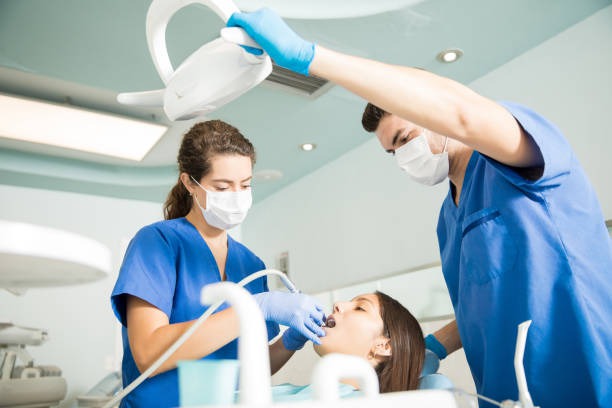Relapse is a common challenge for individuals working through addiction recovery, but knowing how to prevent it can significantly enhance success in outpatient rehab. Let’s unpack what relapse is and why it’s pivotal to your recovery journey.
What is Relapse?
In simple terms, a relapse occurs when someone in recovery returns to substance use after a period of sobriety. It doesn’t signify failure but rather an opportunity to refocus efforts and address any gaps in the recovery process. Most importantly, it’s a reminder that sobriety is an ongoing journey.
1. The Importance of Preventing Relapse
Preventing relapse is crucial for anyone participating in outpatient rehab. Engaging in professional outpatient addiction treatment in New Jersey can help you avoid relapse, support a healthier lifestyle and ensure you continue on the path of progress, embracing the strides you’ve made.
Staying Motivated for Long-Term Success
Remaining motivated can be challenging, especially after the initial excitement wears off. It’s beneficial to set achievable goals and celebrate small victories along the way. These victories serve as stepping stones, encouraging continued commitment to sobriety.
The Role of Support Networks
Never underestimate the power of a strong support network. Relying on family, friends, and fellow recovery participants can provide the encouragement needed during tough times. Remember that asking for help is a strength, not a weakness.
2. Cognitive Behavioral Techniques
Cognitive Behavioral Therapy (CBT) is one of the mainstays in relapse prevention strategies. This therapy helps individuals change negative thought patterns that contribute to substance use behaviors.
Understanding Triggers and Situations
Recognizing personal triggers is essential. Triggers might be people, places, or situations that increase the temptation to drink or use. Once identified, you can create strategies to either avoid these triggers or cope with them effectively.
Steps to Identify Triggers
-
Reflect on past instances of use and what preceded them.
-
Notice patterns or common factors in these situations.
-
Discuss these patterns with a therapist or support group to gain new insights.
Developing Healthy Coping Mechanisms
It is crucial to learn new ways to handle stress, anxiety, and other emotions. Techniques might include exercise, meditation, journaling, and hobbies. These methods provide beneficial distractions and help process emotions productively.
3. Creating a Safe Environment
Crafting an environment conducive to sobriety—including physical spaces and emotional settings — is vital for relapse prevention.
Transforming Your Living Space
A clean, organized space can hugely influence your mindset. Create a home environment that reflects your commitment to recovery — keep it free from substances, and perhaps incorporate elements that promote calm, like indoor plants or calming colors.
Fostering Emotional Safety
Emotional safety in relationships involves open communication, respect, and understanding. It’s about setting boundaries with people who may not support your recovery. This ensures that your emotional health is prioritized and safeguarded.
Building Emotional Resilience
-
Practice mindfulness to stay grounded in the present.
-
Engage in regular therapy or support group sessions.
-
Develop a self-care routine that prioritizes mental health.
4. Continued Education and Learning
Understanding addiction and recovery is a lifelong process. The journey doesn’t stop at knowing you’re an addict; it’s about learning the ‘whys’ and ‘hows’ behind your addiction.
Joining Workshops and Seminars
Participating in recovery workshops or educational seminars can provide new insights and networking with others on similar journeys. These events often introduce new tools and techniques for maintaining sobriety.
Pursuing Personal Development
Recovery provides an opportunity for personal growth beyond just quitting substance use. Embrace learning new skills, pursuing hobbies, and setting personal and professional objectives. These pursuits can fill the void that substances once occupied, providing a sense of purpose and achievement.
5. Engaging in Structured Programs
Structured programs like New Jersey intensive outpatient treatment can be invaluable for those needing more support without the commitment of inpatient rehab. These programs often provide flexible schedules and a mix of therapeutic supports.
The Importance of Routine
Establishing a daily routine helps instill a sense of normalcy and control. Whether it’s sticking to a morning exercise regimen or having structured meal times, routines provide stability in times of uncertainty.
6. Mindfulness and Meditation Practices
Mindfulness and meditation have been shown to reduce stress and improve emotional regulation, both crucial for preventing relapse.
Embracing Mindfulness
Being mindful means focusing on the present moment and reducing anxiety about the past or future. This focus can mitigate overwhelming feelings that might otherwise lead to relapse.
Regular Meditation Practices
Starting a daily meditation practice doesn’t have to be daunting. Begin with just a few minutes each day, using apps or guided videos to help you focus and relax. Over time, increase the duration as it becomes a cherished part of your routine.
7. Building a Relapse Prevention Plan
Creating a personalized relapse prevention plan can act as your roadmap, offering guidance and strategies specific to your experiences and needs.
Components of a Successful Plan
-
Identify Warning Signs: Know your personal warning signs and intervene early.
-
List Coping Strategies: Have a list of actions or distractions when cravings arise.
-
Emergency Contacts: Keep a list of people you can call when you feel vulnerable.
-
Professional Help: If you need additional support, know when to seek help from professionals at programs such as outpatient drinking rehab in New Jersey.
Regularly Review and Adjust
Your plan isn’t static; make adjustments as you grow in your recovery journey. Regular evaluations ensure it remains effective and applicable as your circumstances change.
8. Maintaining a Positive Mindset
Cultivating positivity is more than just “thinking happy thoughts.” It’s about recognizing your worth and believing in your ability to maintain sobriety.
Practicing Gratitude
Daily gratitude practices can shift your focus from challenges to the positive aspects of your life. Consider keeping a gratitude journal and writing down three things you’re thankful for each day.
Affirmations and Positive Self-Talk
Using positive affirmations and encouraging self-talk can rewire your brain toward optimism. Regularly remind yourself of your progress and the strengths you exhibit in your recovery journey.
Concluding Thoughts on Preventing Relapse
Preventing relapse involves a blend of personal commitment, support systems, and structured programs. By integrating these techniques into your daily life, you’ll build resilience and strength in your recovery journey. Surround yourself with love, support, and the belief that a healthy, sober life is within your reach. Remember, the path to recovery is uniquely yours — navigate it with courage and an open heart.





